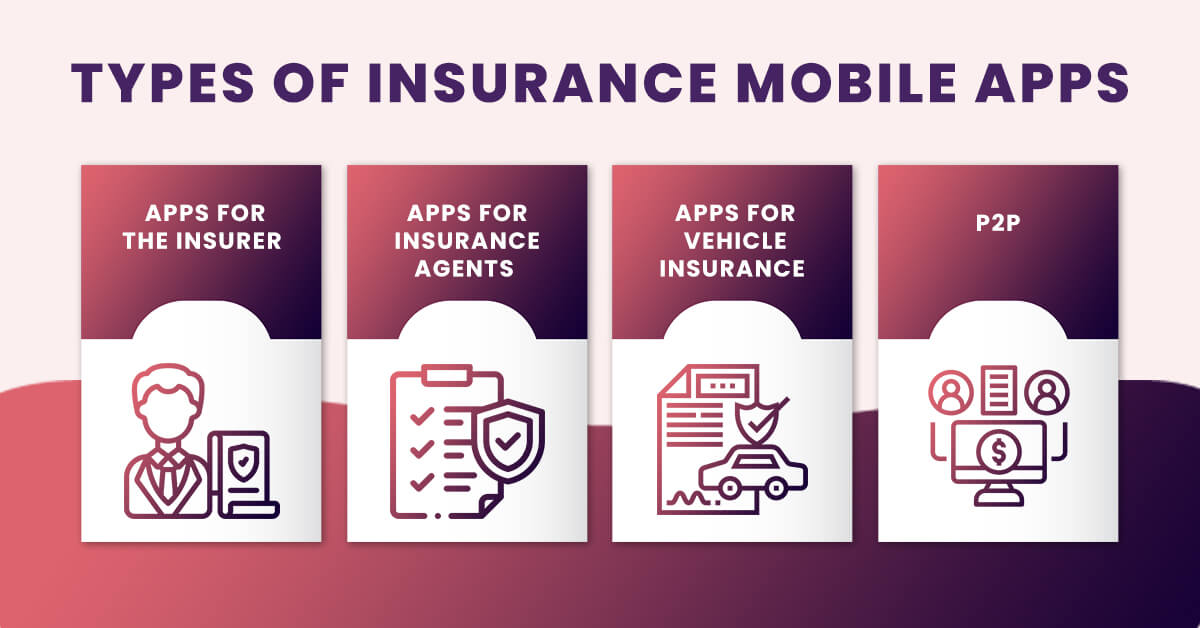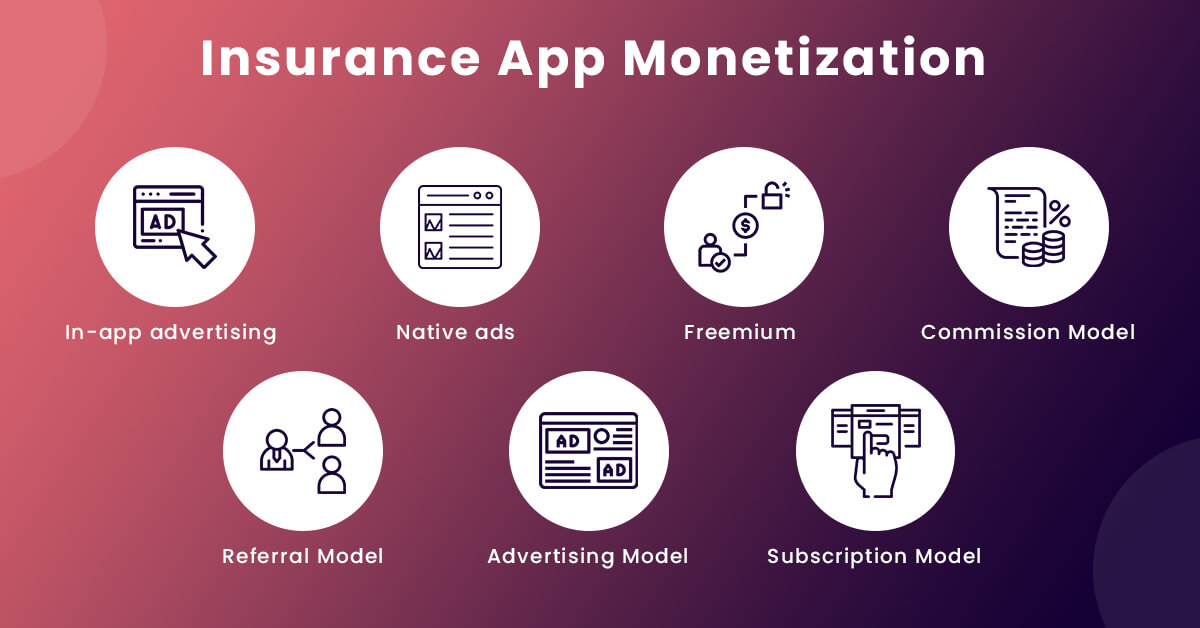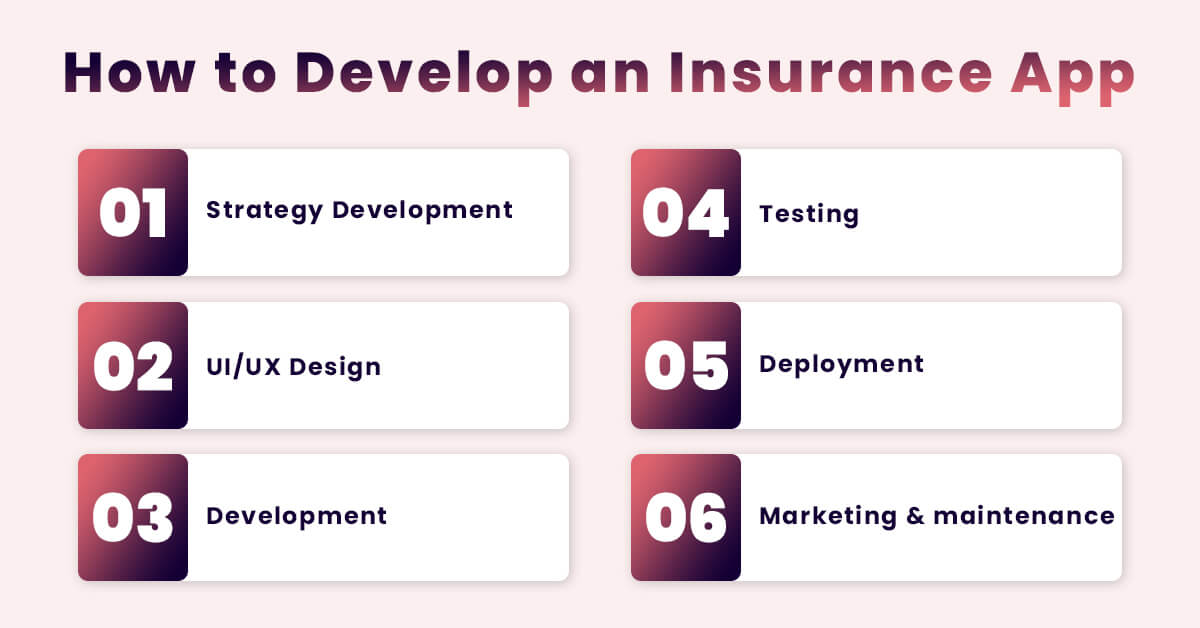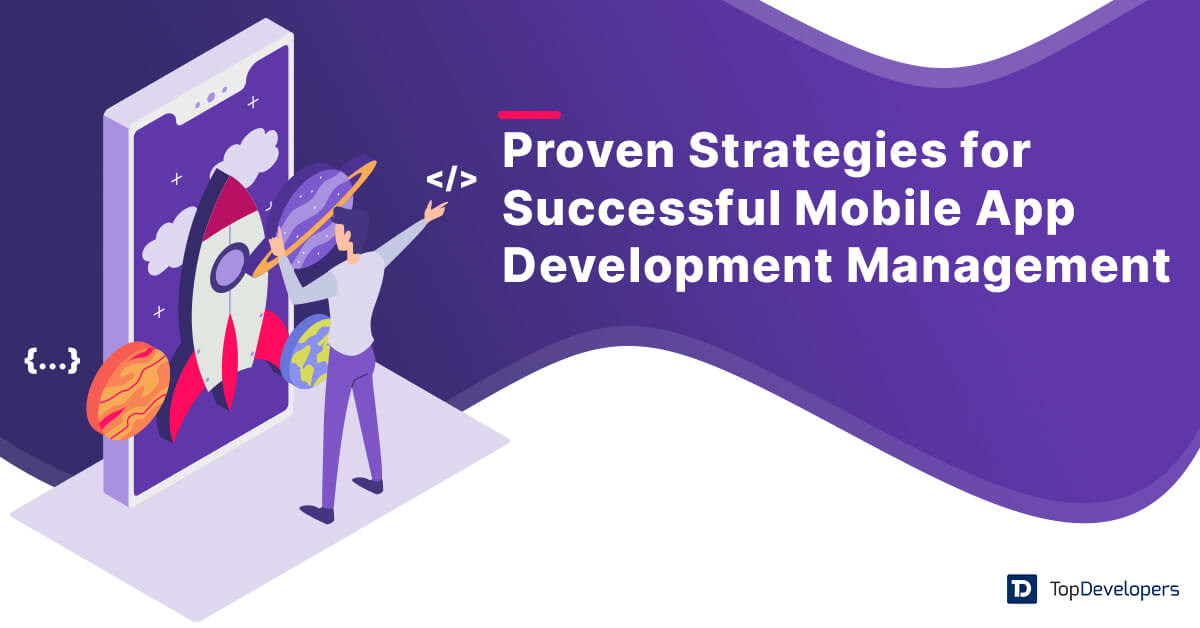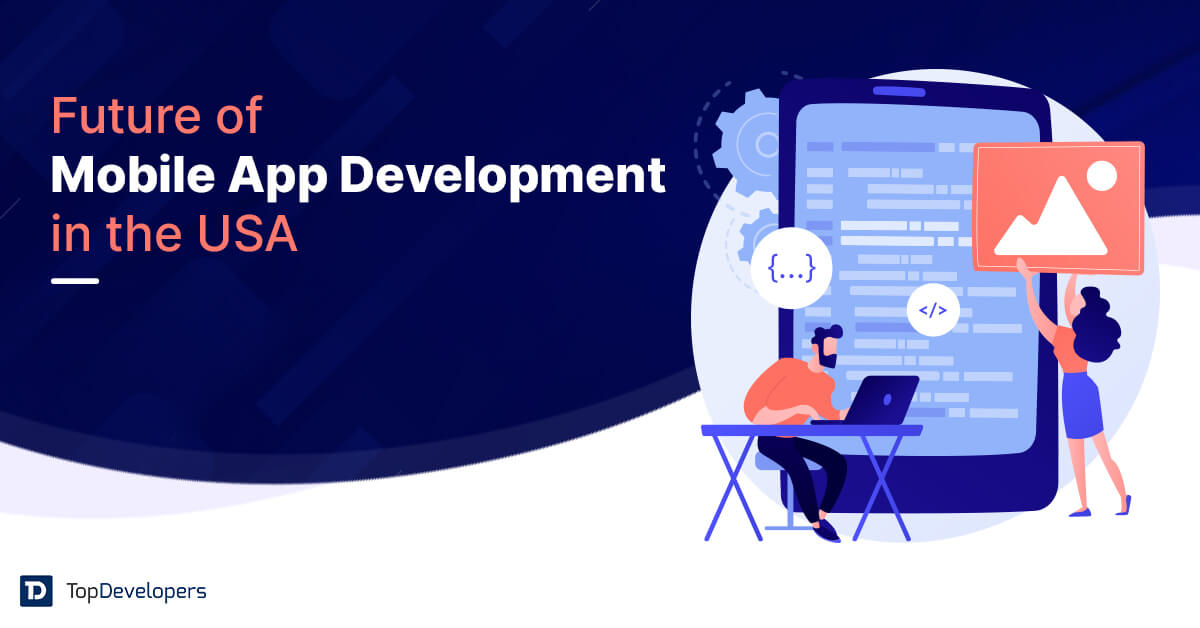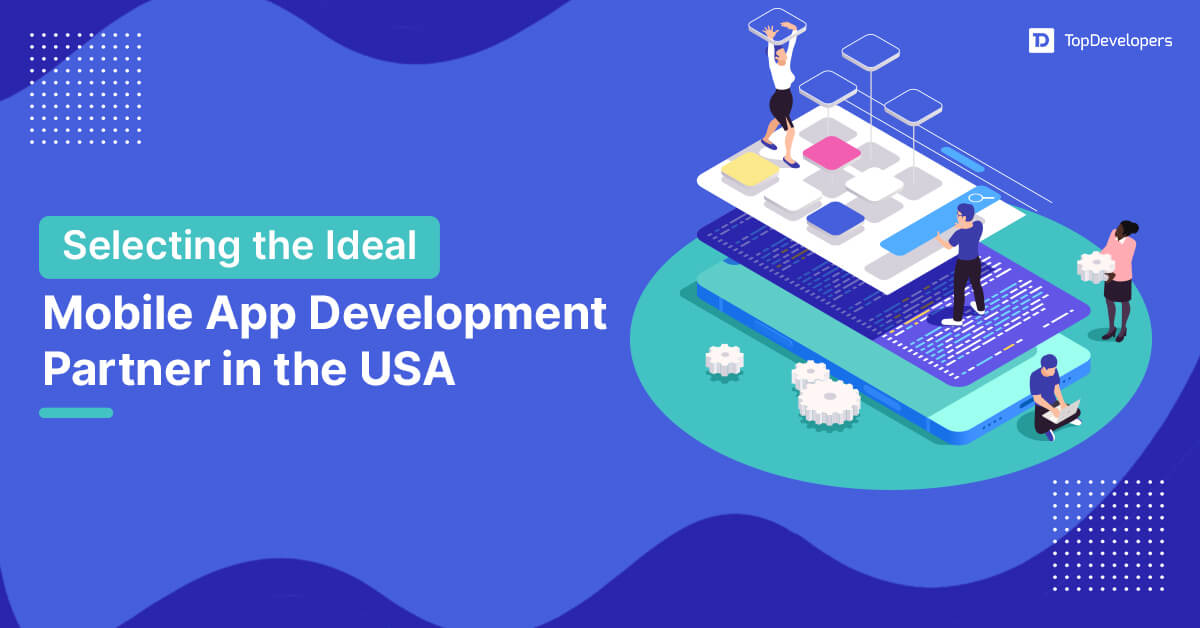
With the advent of cutting-edge technologies, businesses are also moving towards digitization. Having a mobile app for the insurance agency is a great advantage to the customers. Insurance companies are also developing an impactful application due to the high market and customer demand.
No matter what type of insurance policies a client chooses when it is available via smart mobile application nothing can be much more convenient than this. Various fintech app developers are providing the best insurance mobile app development services at a reasonable price. Well, here in this write-up, a step-by-step insurance app development guide is provided in detail.
Table of Contents
- Why do you need to make a mobile app for your Insurance company?
- How does the Insurance App Work?
- Types of Insurance Apps
- Insurance App Monetization
- Best Features of the Insurance Mobile App
- Top 8 Insurance Apps
- Tech Stack used for Insurance App Development
- Steps to Develop an Insurance App
- Advanced Technology in the Insurance App
- Cost to Develop an Insurance App
- It’s all about playing safe!
Why do you need to make a mobile app for your Insurance company?
Advanced mobile technologies have enabled entrepreneurs to explore newer avenues of business in all industry verticals. The insurance business is one such well-paid business that can be leveraged through having customized mobile apps.
Here are some key points to consider:
- Mobile apps are a convenient way to connect with insurers and enhance user engagement.
- A mobile app is one of the most efficient solutions to deal with insurance enthusiasts. A smarter technology that has the capabilities to collect massive data for insurance, reduce operational costs, shares in-depth client insights, and much more.
- Insurance tech integration provided the best B2C interaction with the potential audience. Numerous mobile app development companies are delivering top-notch applications to ensure that insurance companies are leveraging benefits and opportunities from both ends.
- The efficient features of an insurance mobile app not only intensify customer satisfaction but also offer ample free time to the insurance agents to focus on business expansion and other stuff.
How does the Insurance App Work?
Having a mobile app for insurance agencies is a great user-friendly way to manage policies and claims. An insurance mobile application simplifies the entire process and conveniently provides standard solutions to policyholders and insurance providers.
Creating an account and filling up the basic details such as name, contact details, and address is the first step after opening an insurance mobile app. After the completion of the first step, customers can go through the application. Consumers can alter aspects of their insurance coverage, such as deductibles and coverage limitations, to meet their budgets and their unique needs.
After that, users can directly manage the policies through the insurance application. Also, they have the freedom to pay premiums, update personal information, and keep supervision upon submitted claims. Insurance policyholders are highly supported by this function when they need urgent medical attention. Inside the application, users can track application progress and ask queries/doubts of insurance providers.
Types of Insurance Apps
Before hopping on to the other topics, one must know about the different types of insurance apps based on the users. Let’s have a look:
Insurance App for Customers
Apps that an insurer use to update policies, claim files, and other related works are the most prominent insurance app group. This app coordinates much better between the insurer and the insured.
Insurance App for Agents
This is a lucrative app option for insurance agents. It not only helps in closing sales faster but also keeps the agents updated about customers’ policy history, claims filed, etc.
Insurance App for Vehicle
One of the most current insurance industry trends is to ask clients to download unique apps that function in tandem with in-vehicle sensors. This IoT-based vehicle software helps in monitoring and assessing driving habits and dynamically modifies the cost of the premiums.
P2P
This is another type of in-demand insurance application where the practice of people pooling their insurance payments with a single entity makes decisions about compensation in case of an accident.
Furthermore, Insurance apps can be bifurcated according to industry niche.
- Life Insurance app
- Health insurance app
- Business Insurance app
- Vehicle Insurance app
- Travel Insurance app
- Property Insurance app
Insurance App Monetization
While the users continue to have hassle-free experiences, developers create several other ways to generate revenues from the application. For an insurance mobile application, here are a few ways to make money from the app. Let’s begin:
- In-app advertising: In-app advertising is a great way to drive better results and attract more target audiences.
- Native ads: These native ads feature ensures better overall ad performance which led to a higher rate of conversion and revenue. Also, it helps to build trust among your potential customers.
- Premium: It’s a trendy mobile app monetization model that has a wider user base. This model is highly scalable as it offers a “try first then buy” policy to the users.
- Commission: A commission model of an Insurance mobile application is a business model where a third party acts as a mediator between buyers and sellers, and charges fees for each transaction. The commission could be a fixed amount or a percentage of the sale price
- Referral: A referral model is a business model where an insurance company pays a reward to another party for bringing in new customers or leads. The reward can be cash, discounts, free products, or other incentives.
- Advertising Model: Advertising is a money-making model that refers to renting out a space to other companies to display their products and services on the insurance mobile application. The ads could be targeted based on the user’s profile, behavior, or preferences.
- Subscription Model: A subscription revenue model charges a recurring fee to provide access to a premium product or service of the Insurance app. The fees could be monthly, quarterly, yearly, or based on usage.
- Partnership: A partnership model involves more than one company coming together and earning from profits. Alternatively, a partnership can also occur with a finance-leading company offering funds and asking for some percent of the revenues generated by the Insurance company.
Best Features of the Insurance Mobile App
Features for insurance mobile app can be bifurcated according to the general as well as industry app development.
- Common Insurance App Features
- Customer Dashboard
- User Registration
- Manage Profile
- Document Repository
- Premium Payment
- Claim Management
- Policy Management
- Policy Quotes
- Premium Payment Options
- Notifications and Alerts
- Safety AspectsCustomer Support
- Payment Gateway Integration
- In-App Calculator
- Admin Panel
- Manage Users
- Document Repository
- Policy and Claim Management
- Manage Payment
- Reporting and Analytics
- Customer Dashboard
- Advanced niche-specific Features
- Life Insurance
- Real Estate and Property Insurance
- Vehicle Insurance
- Health Insurance
- Travel Insurance
- Business Insurance
Top 8 Insurance Apps
Let’s have a look at the top seven best mobile insurance applications that are thriving in the field of insurance businesses.
- Lemonade – One of the best insurance apps which provide real estate insurance for policyholders. The app has been rated 4.9/5 and downloaded for more than 500K.
- Cuvva – It is one of the most progressive car insurance apps that deliver smart pricing, and quick and ultra-flexible coverage.
- Oscar – This is a sophisticated health insurance app that simplifies medical insurance. The app enables users to look up illness symptoms and medications, choose a doctor, schedule an appointment, and much more.
- Metromile – One of the customized car insurance applications that deliver personalized policies so that users can avail best options.
- HDFC life insurance app – It is one of the best and leading life insurance firms that covers insurance solutions like pensions, tax savings, investments, etc.
- myCigna – This is a global healthcare insurance company that covers effective insurance with quick on-the-go access and also allows users to personalize it.
- GEICO mobile app – One of the most effective auto insurance mobile apps that offer in-app parking locators, voice commanders, digital ID cards, and a lot more.
- PolicyBazaar – One of the best policy apps that let you compare policy quotes and plans from different insurance service providers.
Tech Stack used for Insurance App Development
Mobile app development requires a specific tech stack to build customized products. For insurance, too, the major focus will be on the technology stack that can help to build a successful app that is fast, safe to use, scalable, and have minimum turnaround time. In addition to enhanced technologies, these are also utilized in developing a mobile insurance application.
Here, is the most precise list of the mobile app technology stack that can be used to make a leading Insurance app.
- Native mobile app
- Android: Java, Kotlin, Android Studio, Android UI
- iOS: Objective C & Swift, Xcode, UIKit
- Cross-Platform App: React Native, Flutter (Dart), JavaScript, Xamarin
- Payment Gateway: Stripe, PayPal, Braintree
- Server: Apache, Nginx, Microsoft IIS.
- Hosting: Microsoft Azure, Google cloud service, AWS (Amazon Web Services)
- Database: MySQL, MongoDB, Cassandra
- Storage: Google cloud storage, Amazon S3, Microsoft azure storage
Using these aforementioned tools, insurance app developers make sure that the app is equipped with top-notch tools for scalability, safety, and optimum performance.
Steps to Develop an Insurance App
The steps to build an insurance mobile app aren’t different from the steps to develop an app. By creating and launching an insurance app, an insurance company will be able to meet digitized needs, fulfill consumer requests, and a lot more.
There are mobile app development companies that can develop an entire insurance application if they have verified the hypothesis, processed customer input, and assessed key performance metrics.
Here are the steps to follow:
Strategy for App development
First of all, a strategy that is created based upon the overall aspects of an insurance company and insurer needs is a must-have. Apart from these, recent trends and additional opportunities are needed to be kept in mind to include all the latest modifications in the app.
Mobile App UI/UX design (wireframes)
After having a strategy, in the next step a creative design is a crucial task to complete. One of the most important tasks is to perform prototyping to ensure the correctness of all the implied factors.
Insurance Mobile App Development
What tools, features, and capabilities will be significant for an insurance app, should be decided upon before developing an MVP. As policyholders begin making use of the application and based on the user’s feedback, the remaining functionality can be implemented.
Testing of Insurance mobile app
Whenever an insurance mobile application is created, it goes through a process of testing before it is made available to the users. QA guarantees stability and dependability which are the two vital factors that an insurer requires in the mobile application.
Insurance App Deployment
Once all the processes are completed, the insurance application is released on app stores like Google Play, Apple Store, and other app-downloading platforms. This ensures easy and safe access to the insurance app for its target audience.
Maintenance of the Insurance App
As per the insurance market trends and the latest technology updates, mobile apps must be updated regularly to ensure hassle-free work on all the latest platforms.
Want to delve deeper into mobile app development? Read this guide.
Advanced Technology in the Insurance App
Well, cutting-edge technology is already making its way into the insurance companies, and several other advanced technologies are helping it make better. Jotting down a few enhanced technologies that can be used to develop a mobile app for insurance agencies.
Predictive analysis
It helps improve accuracy for insurers, especially for property and casualty coverage. It also streamlines claim processes by policyholders and mitigates risks that traditional claiming methods have.
Telematics
Mainly benefitting auto insurers and policyholders, telematics is offered widely through wearable tech for car insurance policies. Based on mileage and driving behavior, the insurance policy operates.
Drones
Since Hurricane Harvey hit in 2017, insurers have been using drones to expedite all their claim processes. High-quality video and images shall be embraced by insurance companies as state-of-the-art technology for their business.
Chatbot
Offering assistance 24/7, the insurance chatbot shall help all clients in selling insurance products plus assist them in facilitating claim processes earliest. Customers opine that such a feature is quite helpful, especially in health insurance applications.
Cost to Develop an Insurance App
There is no such hard and fast cost fixed in building an insurance app. The distinct parameters are considered while creating an estimated budget for building an insurance application.
The cost of an insurance app development sums depending upon:
- The complexity and size of the project
- Business objectives
- Functionality and interactions
- Development platform (iOS, Android, Hybrid, Cross-platform, etc.)
- Technology stack
- App developer’s charge
- Invested time and so on.
Rates to develop an Insurance application may vary depending upon MVP for a single platform which is around $30,000 while for both platforms (iOS and Android) it costs start from $10,000 to 500,000. It can go higher if you want to add more advanced functionality to your insurance app.
It’s all about playing safe!
Looking at the current scenario, insurance mobile apps are a necessity rather than an option. Insurance companies should have a customized mobile app, as it has numerous privileges like meeting the market trends, improving the number of users, generating revenues, and outperforming competitors.
While most Gen Z prefers to use a mobile application, it is very essential to shift insurance providers toward the digital world. Also, an insurance mobile app streamlined the entire process of policies, claims, retention rates, and much more. Thus, you may outsource mobile app development to build a customized tool for your insurance company.
FAQs About Insurance App Development
How much time is consumed in developing an insurance mobile app?
Within 2-3* months an MVP for Insurance app is created but developing an entire mobile application takes around 5-6* months depending upon the requirements.
By using cross-platform app development tools, can an insurance agency app be developed?
Yes, an insurance app can be created using cross-platform frameworks such as Flutter and React Native to build a single app that works on both iOS and Android at less cost and time.
What other safety features are available in the insurance application to protect customers’ personal information?
Apart from data encryption used in the Insurance app development process, there are other safety measures that can be taken to secure the app at the users’ end such as Biometric authentication, and two-factor authentication.
 Avantika Shergil
| Mar 30, 2023
Avantika Shergil
| Mar 30, 2023
An enthusiastic Operations Manager at TopDevelopers.co, coordinating and managing the technical and functional areas. She is an adventure lover, passionate traveler, an admirer of nature, who believes that a cup of coffee is the prime source to feel rejuvenated. Researching and writing about technology keeps her boosted and enhances her professional journeying.
